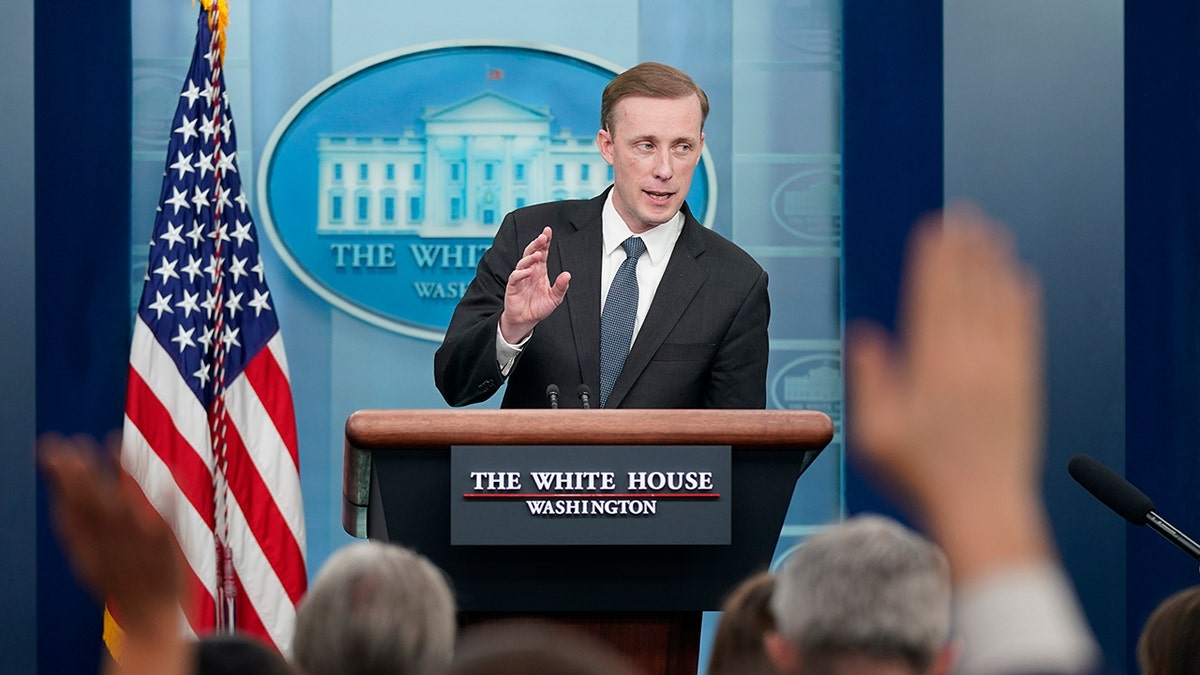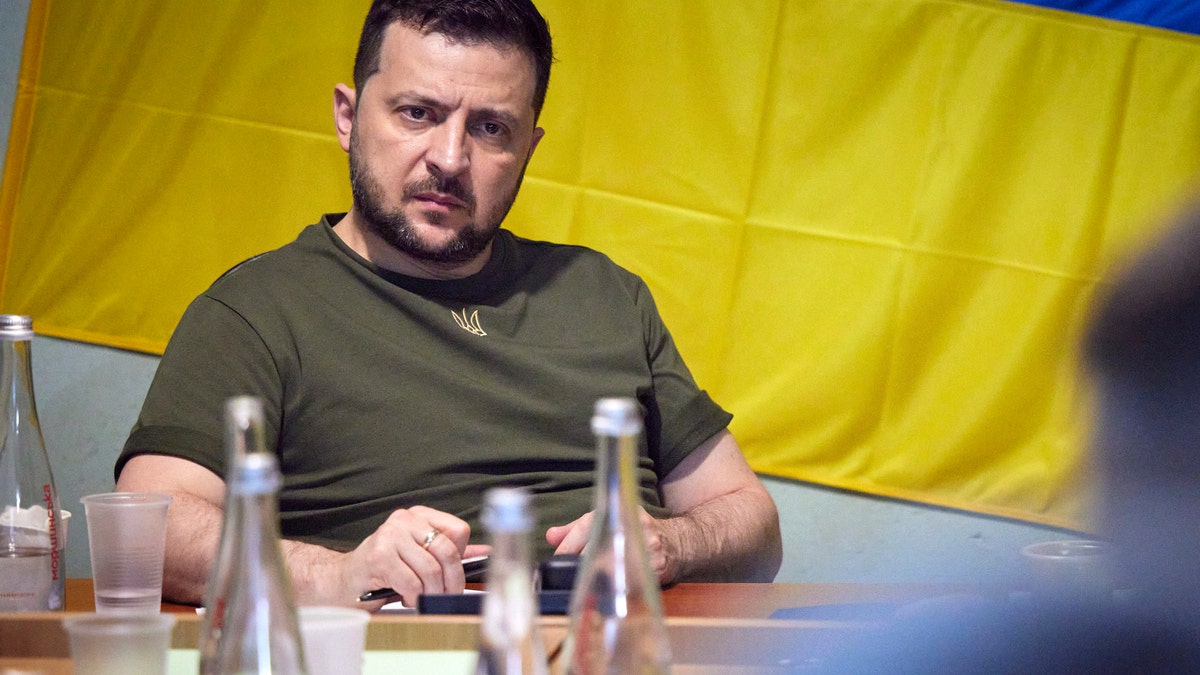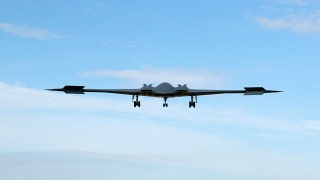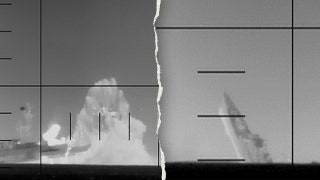Thousands flee Donbas region in Eastern Ukraine as Russian shelling continues
Fox News correspondent Lucas Tomlinson has the latest as Russian shelling strikes cities across Eastern Ukraine on 'Special Report.'
The White House continues to provide assistance to ensure the safety of Ukrainian President Volodymyr Zelenskyy’s safety even as the Russian invasion has focused in the eastern region of the country, a security official revealed.
"It’s not something to make light of because President Zelenskyy's personal safety is something that that concerns us," Jake Sullivan, the White House National Security Advisor, said Friday during the Aspen Security Forum.
"This is a leader in wartime dealing with an opponent, an adversary, an enemy in Russia that is ruthless, brutal and capable of just about anything, so it is a concern," he continued. "President Zelenskyy takes the precautions you would expect to protect himself, to protect continuity of government in Ukraine, and we are trying to help and facilitate that in any way that we can."
Zelenskyy allegedly survived at least three assassination attempts by Russian troops in the early weeks of the invasion. The Times of London reported that he was able to avoid these attempts because Russian individuals fed intelligence to Ukrainian government officials.
The report stated that the Wagner Group, a Russian backed paramilitary mercenary force, was behind two of the attempts which would presumably allow Russia to deny involvement if the group was successful in killing Zelenskyy.
In a move supported by U.S. Secretary of State Antony Blinken, the European Union in December moved to sanction the Russia-backed Wagner Group and its associates for serious human rights abuses, including torture and extrajudicial, summary or arbitrary executions and killings, and destabilizing activities in countries including Libya, Syria, the Central African Republic and Ukraine’s Donbas region.

National security adviser Jake Sullivan speaks during a press briefing at the White House, Tuesday, March 22, 2022, in Washington. (AP Photo/Patrick Semansky) (AP Photo/Patrick Semansky)
The failure to kill Zelenskyy ranks among the greatest shortcomings during Russia’s invasion, according to British spy chief Richard Moore.
"We had the enormous privilege in the U.S. and U.K. intelligence services of knowing what [Putin’s] plan was, and he had three things he wanted," Moore said. "One was to remove [President Volodymyr] Zelenskyy, second was to capture Kiev, and third was to sow disunity within the NATO alliance."
"If you turn to those three briefly … I think that's a fail, if you completely failed to capture Kyiv." That, he said, means Russia suffered a "very, very bloody nose."
Sullivan acknowledged that the American intelligence community misjudged Russia, claiming that assessments before the war indicated that Russia would be "significantly more capable and … more successful on the battlefield."

In this photo provided by the Ukrainian Presidential Press Office on Saturday, June 18, 2022, Ukrainian President Volodymyr Zelenskyy attends a meeting with military officials as he visits the war-hit Mykolaiv region. (Ukrainian Presidential Press Office via AP)
"Russia was not able to achieve the basic strategic objectives that President Putin set out, which were to seize the capital city of Kiev and to end Ukraine as a going concern," Sullivan said. "Instead, the Ukrainians won the battle of Kiev; they beat Russia back from Kharkiv; they stopped Russia from being able to make bombs rush to Odessa, and they essentially stymied the Russian effort to get beyond a swath of territory in the south and east of the country."
"Now we're in a circumstance in which Russia is facing significant difficulties, constituting the kind of force necessary for them to achieve the objectives which have not fundamentally changed," he added.
CLICK HERE TO GET THE FOX NEWS APP
Both Moore and CIA Director William Burns revealed this week that U.S. and British intelligence estimates would suggest that Russia has lost at least 15,000 troops since the start of the invasion almost five months ago: That would equal the total number of Russian troops that died in the decade-long Afghanistan war effort in the 1980s.
Fox News' Andrew Mark Millar contributed to this report.









































